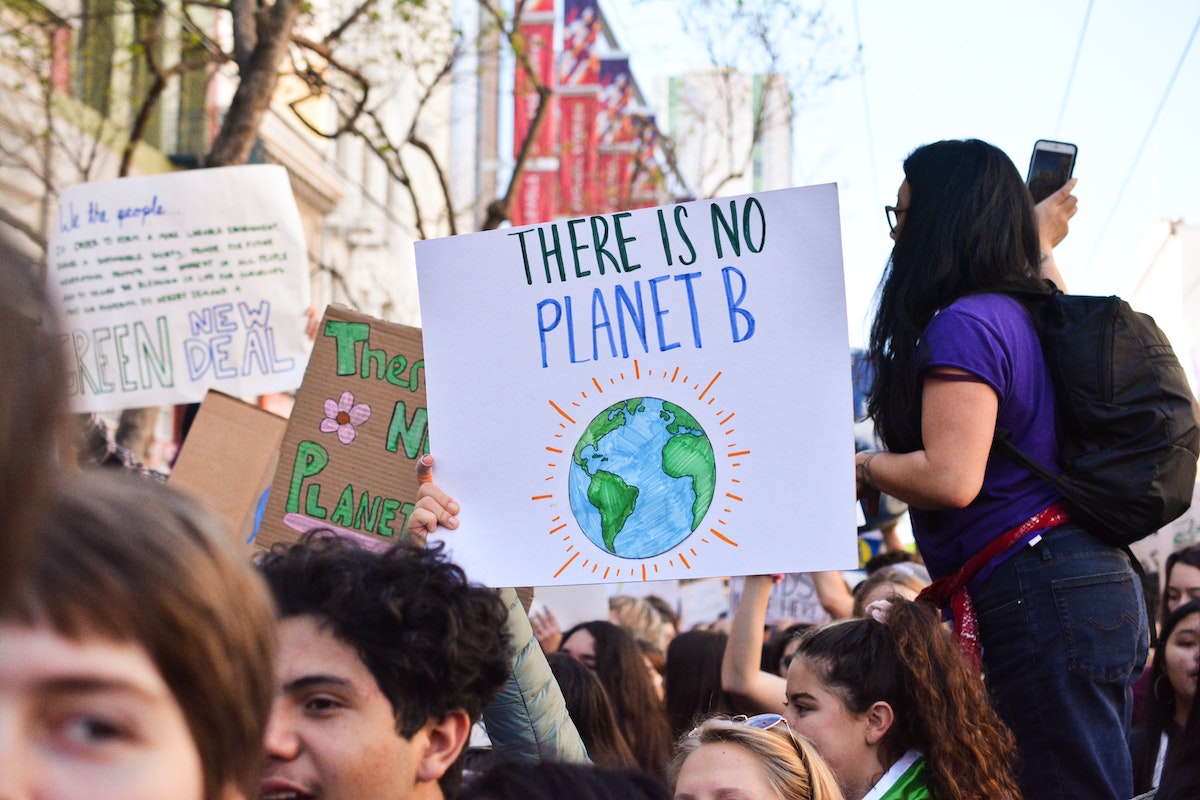You see it on the news with increasing consistency—the highest recorded global temperatures on record for June, followed the next month by the highest recorded global temperatures ever recorded for July. We watch as fire seasons are starting earlier and with increasing numbers and intensity. Hurricane seasons intensifying and record breaking flooding happening throughout the world as winter storms shut down entire power grids for sustained periods of time.
At what point does the onslaught of extreme weather events stop being thought of as isolated natural disasters and start being thought of as direct consequences of humanity’s short-sightedness in the addiction to growth and capital accumulation at the expense of others—and the planet?
It’s hard to believe people are still in denial of something we are all living with and witnessing in real time.
Last month, Antarctica recorded temperatures which were 70°F higher than average, while areas of the arctic were 50°F higher than average. Climate change isn’t something which is around the corner, it is here right now. You can’t close your eyes and pretend it doesn’t exist.
If the pandemic showed us anything, it is that some people’s ignorance to facts runs deep. Of course flat-earthers showed that this willful stupidity existed well before the pandemic. We are all living with the consequences and, I am sorry, but it is only going to get worse.
The third installment of the Intergovernmental Panel on Climate Change report released earlier this month stated that the global greenhouse gas emissions would need to peak by 2025 at the latest if we want to limit the warming to an increase of 1.5°C, or 2.7°F. In order to make this possible, we would need to take immediate actions to reduce emissions across all sectors, as well as reduce methane by about a third, all with the aim of reaching net zero CO2 emissions by the early 2050s.
The implication of the report is that the door to keeping the temperature increase below 1.5°C is all but shut with a tiny sliver of hope still visible through the crack.
To keep any of this hope within sight, the shift away from fossil fuels needs to happen now. Even with this urgency, the report doesn’t seem to be affecting the decisions of those who have the power to actually make decisions—at least in any positive direction.
In response to rising gas prices, President Joe Biden authorized the release of one million barrels of oil a day from the country’s reserves to help alleviate the spike in costs. In addition, on April 15, the United States Department of the Interior announced it will be offering up 144,000 acres of federal land, split up between 173 parcels, for oil and gas drilling leases. Though the 140,000 acres is 80% less than what was initially evaluated for leasing, none of this makes any sense when thinking about the long-term costs this will have on our environment—and all living and nonliving beings.
While this move is meant to help alleviate the costs at the pump, it’s like putting a used and dirty Band-Aid on an open wound. The costs at the pump are high, but the price which future generations will be paying with the rising global temperatures will be much higher. The tradition of passing the problem off to the kids has always been the status quo.
The one thing opening up more land for drilling does is show that those in power are consistent in keeping up with tradition of ignoring the issues while people are already suffering for their negligence.
As we swim through the waters navigating from one economic crisis after another, we are dealing with unchecked police power, increasing fascist rhetoric in all levels of the government and increasing wealth inequality throughout the world—it’s becoming increasingly hard to keep our heads above the rising seas of climate change.
The failures of Congress and our broken electoral system pile on to the mountain we already have to climb to make any sort of progress through legislation. The American Prospect showed that as of Dec. 2019, 134 members of Congress, including spouses, owned $92.7 million stock in fossil fuel companies. Another article examining the U.S. House alone stated that at least 100 House representatives owned investments in the fossil fuel industry. Out of those 100 representatives, 59 were Republicans and 41 were Democrats.
With the conflict of interest so blatantly obvious on both sides of the political spectrum—basically amounting to legal bribery under the guise of lobbying and other strategies—it becomes increasingly clear that relying on our government to act with urgency regarding climate change, or any other issue for that matter, will only lead to more feelings of hopelessness.
Those who are most likely to avoid any climate change suffering are the same people who are already able to avoid consequences for their actions. Those who are struggling will continue to struggle while those who already possess inherent privileges will be the ones who will manage to stay afloat on the life raft while everyone beneath them drowns.
It is a failure to think companies such as Tesla are going to solve the crises, since the foundations of environmentalism and rugged individualism opened the door to greenwashing and passing responsibility from producers to consumers. Not only are electric cars a sign of privilege due to the cost factor alone, but even if more people could afford them, what apartment complex or retail business is going to let you charge your vehicle at home or at work? More toys for the privileged to flex their wealth.
These cars don’t come with a clean conscience, either. While Tesla is aiming to switch the batteries in its standard-range cars to lithium-iron-phosphate cathodes, its longer-range vehicles will still continue to require the mining of cobalt, nickel and aluminum.
Mining of all of these minerals—including the lithium ore—presents a whole other range of issues including the amount of water required for extraction, the toxic chemicals leaking into water supplies, and the contamination of soil and air. On top of that, XiaoZhi Lim of The Guardian stated an estimated “12 million tons of lithium-ion batteries are expected to retire between now and 2030.”
Electric cars are just another form of an individualistic action in response to a growing global problem. This isn’t to say individual actions such as riding a bike, eating vegan or consuming less aren’t great things we can all do, but the actions needed to confront the crisis we are facing are larger than the ballot box or taking your reusable bag to the grocery store.
Relying on the state to do anything beneficial for the masses often ends up leading to an illusion of progress, as capitalism and our government continue with the tradition of being consistently inept as long as those at the top continue to accumulate wealth.
If you still believe progress can be made by using means within the state, then you should look beyond the Green New Deal and also pursue the Red Deal and its foundation based on Indigenous liberation and decolonization.
Burnout and fatigue are real. With all of the issues we face on a daily basis, apathy may seem a more appealing option at times, but if you want change to happen and believe in walking the walk, then looking for solutions—outside of the state—seems much more worth your time, investment and energy.





